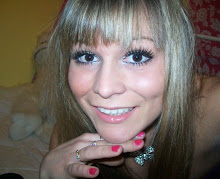Hampshire is well known for its rich
history, beautiful countryside, wild life and sleepy villages. It is now
occupied by wealthy people, expensive stores and a large number of curious
tourists who come to the county every day to get to know the roots of
Hampshire’s history. However, it hasn’t always been this way. Places such as
Winchester, Southampton, New Forest and Basingstoke have dramatically changed
since the rural times. Today they are modern and sophisticated. During rural
times they were simple, primitive and overpopulated.
Farming used to play a huge part of
Hampshire’s life, influencing the landscape and people’s lives. It was an
essential factor to help the economy run, bringing food and other products to
sustain life. When the technology started to develop life in Britain became very
hard. As new machines were invented, people were no longer needed to do farming
jobs so they moved to the cities. The cities became overcrowded. Many people
didn’t have a job and were very poor. People stole things to survive. This was
seen as a crime which caused masses of people to be transported to Australia.
The land documentary is supposed to show
Hampshire and its history; and how it developed after the Industrial Revolution.
The Industrial revolution, of course, eventually won the competition with the
rural industries and the urbanisation started in the 19th century. Industrial
revolution also effected transportation. In the 19th century bicycles,
steamships and trains made it easier for people to move further away. In the
20th century, the explosion motor further accelerated this process. An
ever-growing part of world population became subdued to market economy. The
revolution was something more than just new machines, smoke-belching factories,
increased productivity and an increased standard of living.
Initially, as a team of three, we chose to
film Hampshire from William Cobbett’s point of view. The view that he included
in his Rural Rides. On this theme, his Rural Rides has proved his most enduring
work. It is a collection of journals written during his tours on horseback
between 1822 and 1826, observing rural conditions and discussing the political
perceptions of the agricultural community. William Cobbett was a journalist who
didn’t agree with the British government but who believed that reforming
Parliament and stopping the rotten boroughs would help to end the poverty of
farm labourers. He was brought up by his father who owned a farm. This has
certainly put countryside to his heart.
The planning stage of the documentary was
simple as we knew exactly what we wanted our film to look like. We got together
in order to write down all the ideas that came to our heads and pictured
everything scene by scene. We decided that we would have two people talking in
the whole documentary. One of them would be a historian who tells us the story
of Hampshire, and who also talks about William Cobbett, his love for
countryside, but also about Industrial Revolution, emigration and
overpopulation. In the end, we had to drop that idea and focus on just
countryside instead due to an interview we arranged which didn’t go the way we
wanted to. The second person talking would be a voice over reading out a poem
called ‘The mask of anarchy’ by Shelley, alongside with quiet music in the
background- Ralph Vaughan Williams, Tallis Fantasia- that would put the
audience watching the documentary into a lovely, nostalgic mood. The historian
we chose is a lecturer at Winchester University, Jean, who specialises in
William Cobbett and rural history. We also got in touch with Collin Firth’s
agent because we thought it would make the documentary look very professional
if he read out the poem for us, however he we were unsuccessful and therefore
we went for Tony Dean- the Dean of Winchester University. Instead of the
historian we asked an English Literature student- Hollie Ward- to be a narrator
to a script we wrote about Hampshire’s rural life and our own interpretation of
the poem.
We went to Salisbury, to film a beautiful
and frosty sun rise as an establishment to the documentary. Salisbury was our
starting point because of its rich history and wonderful scenery, such as the
cathedral and fields filled with beautiful flowers, horses, sheep and an easy
countryside life. It shows how relaxing and simple farm life is now comparing
to the one people were leading before the Industrial Revolution.
The next stop was Southampton and Winchester
to show the contrast between a country side and a busy city life. We filmed the
Southampton gates and the high streets with many shops and people rushing
around trying to get to work. We didn’t
use any of the shots in the final edit because we focused on countryside.
In the editing stage we cut the music into
shimmers, swells, themes and bed in order to then choose the right pictures and
put them in an accurate position matching the music and giving the whole
documentary colour. We cut Hollie’s speech and Tony’s poem and put them in the
places we thought they fit in. We thought making long pauses in between talking
and stings after their speeches would make it sound more affective and be more
interesting to watch. We used long pans of the country side and river to
emphasis the nature of rural life. Our bit of the overall Land project is 5
minutes 20 seconds long.
Overall, the project was a great experience
and a good way to finish the university course. It was more relaxed than any
other projects ever done before but at the same time it was highly enjoyable
but challenging.













